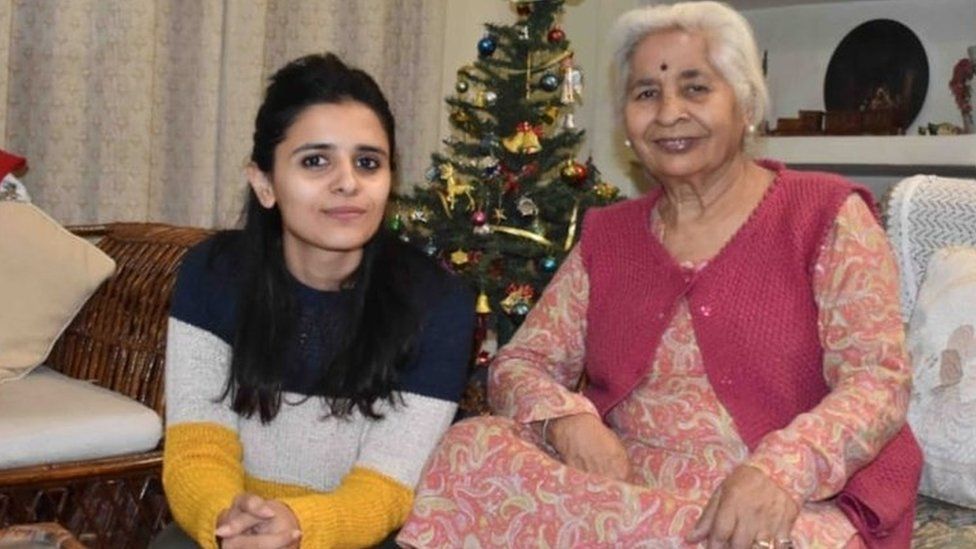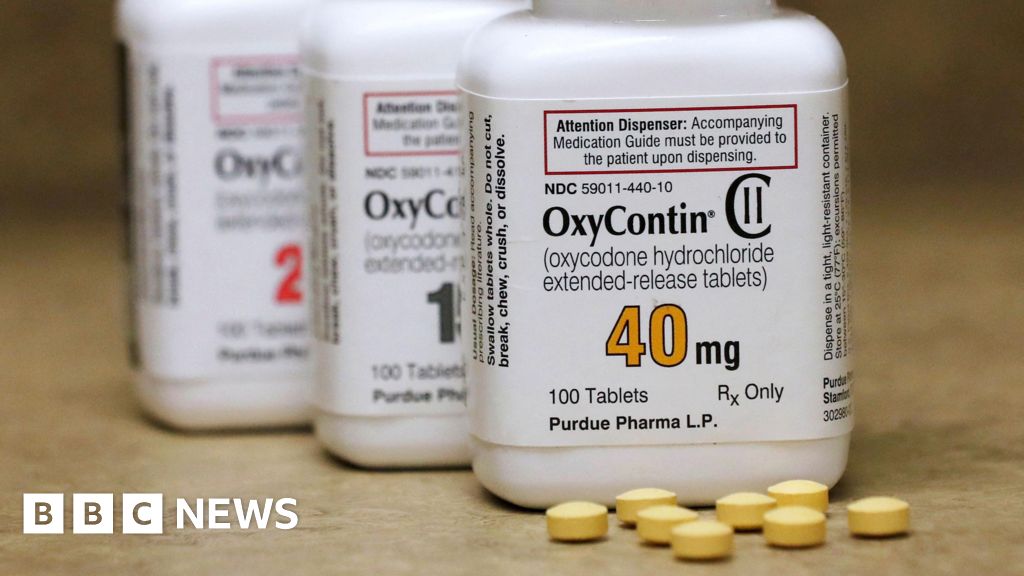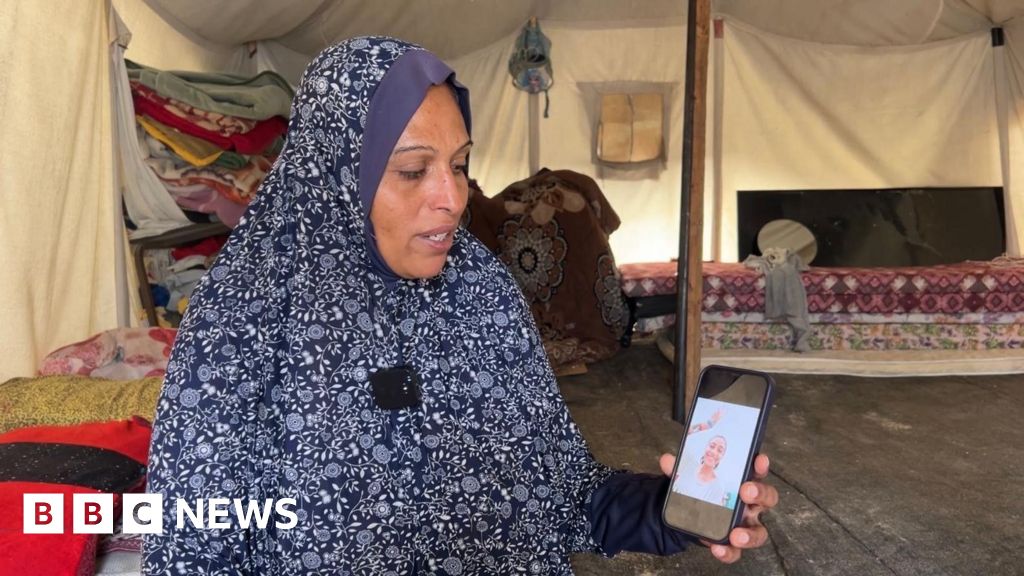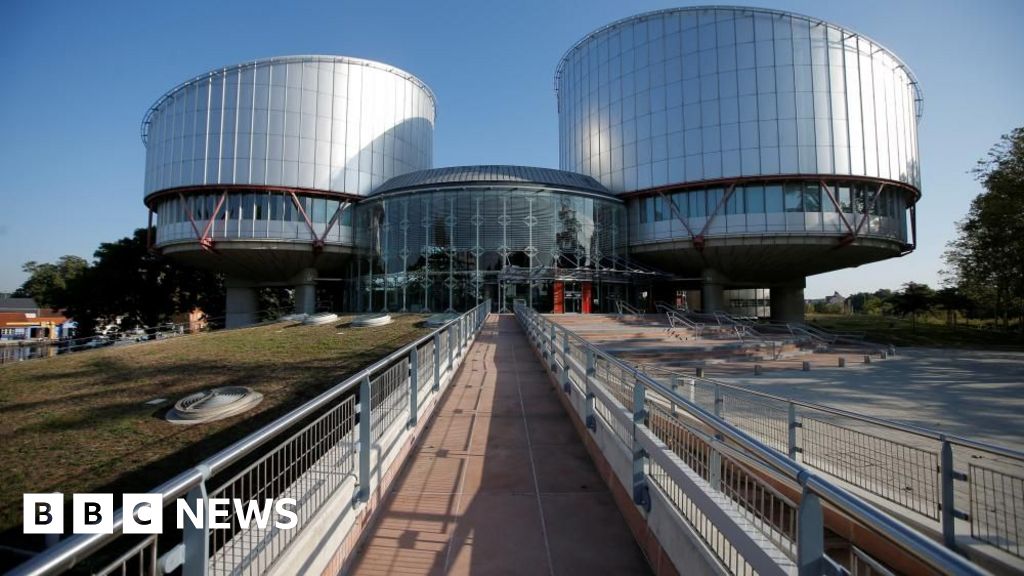ARTICLE AD BOX
By Cherylann Mollan
BBC News, Mumbai
 Image source, Courtesy Sameera Chauhan
Image source, Courtesy Sameera Chauhan
Sameera Chauhan says listening to her grandmother's partition stories brought them closer
Sameera Chauhan was 10 years old when she discovered that there were two Punjabs - one in India and the other in Pakistan.
She was told that her grandmother grew up in the part of Punjab that went to Pakistan after the partition in 1947 - like millions of others, she fled to escape the violence that flared up after the event.
When the British left India, they divided the country into two independent nations - India and Pakistan. Millions of people were displaced, and religious violence killed hundreds of thousands.
Though Ms Chauhan's generation is twice removed from the partition, she says her grandmother's stories brought alive the trauma it caused. It also helped her understand why her grandmother was a reticent person who lived in a "constant state of anxiety".
She isn't alone. Many young people of Indian and Pakistani descent across the world are reckoning with the scars left by partition on their families. Some have started social media projects to share stories, while others are helping people find lost family members.
Seventy-five years after the event, the BBC spoke to some young people whose grandparents experienced partition to understand how it has impacted their lives.
'It helped me understand him better'
Image source, Courtesy Devika Arora
Image caption,Devika Arora's grandfather lost many family members during partition
Devika Arora, 26, remembers her grandfather - who died last year - being careful with money. He also wanted to be in control always, a desire that manifested as fierce, almost stubborn independence.
"He wouldn't rely on any of his children or grandchildren for help," Ms Arora says.
His behaviour only began making sense to Ms Arora after she heard him talk about partition.
"During the partition, he experienced his life spiral out of control overnight. He spent the rest of his life never wanting to lose control again," she says.
Like millions, Ms Arora's grandfather lost many family members during partition.
"He would tell me how he watched his mother and four sisters jump inside a well, which was then covered with blankets and set on fire by members of the community. They did this to save themselves from being raped by rampaging mobs," she says.
The teenager made the journey from Multan city in Pakistan to India alone. He was just 16 years old when he arrived in Delhi, with nothing but the clothes he was wearing.
"The feeling that life can be grotesquely unpredictable settled in his bones," she says. "I don't think it ever left him."
'Her silence began to speak volumes'
Image source, Courtesy Rupy C Tut
Image caption,Ms Tut's grandfather carried his glass ink pen holder with him when he fled to India
Rupy C Tut, 37, grew up listening to stories about the partition, mostly from her grandfather. He and his family fled from Pakistan to India after a well-wisher warned them that they were going to be "killed off tomorrow".
Her grandmother rarely spoke about her experiences. "The few times she did, it was in terms of the material possessions they had lost. But largely, she was this graceful lady who always seemed content with life."
But Ms Tut remembers her grandmother falling sick often. Her legs constantly ached and later on, she suffered multiple strokes.
"As her health deteriorated, I felt the distance between us increase. It became harder to talk to her," Ms Tut says.
It was years later - and through another family member - that Ms Tut learnt something heartbreaking about her grandmother. "Her newborn baby had died, either during the journey from Pakistan to India or at a refugee camp. But she never spoke much about the baby, or the trauma the loss caused her, even to her daughters."
Ms Tut believes this tragic loss "took a toll on her body".
And yet, it was this loss that brought her closer to her grandmother: "I lost a child to a late miscarriage, so I felt one with her in her pain, even though she never spoke about it."
Ms Tut currently works as a visual artist in San Francisco, and says her paintings, which are often inspired by the partition, are the instruments through which she bears witness to her grandmother's trauma.
It also works as a medium for her to process her own feelings of displacement as a first-generation Indian immigrant and a "second-generation witness of partition".
'I began to see her in a whole new light'
Image source, Courtesy Kalsoom Lakhani
Image caption,An old photo of Ms Lakhani (extreme left) with her grandmother
Kalsoom Lakhani, 39, who grew up in Pakistan and later Bangladesh, says she always knew her grandmother as a "loving person who would slip candies in my pocket whenever I went to visit".
But she had also heard fascinating stories about her from family members - about the relief work she had done in Pakistan after the partition, and later on, during Bangladesh's independence war in 1971.
In her 20s, Ms Lakhani, who had moved to the US, she travelled back to Dhaka city in Bangladesh to document the stories from her grandmother herself.
"She told me about her time in the Pakistan Women's National Guard (PWNG) and how she was one of its first commanders," Lakhani says.
The PWNG was a volunteer organisation set up by Begum Ra'ana Liaquat Ali Khan, the wife of Pakistan's first prime minister. Its members administered first aid and distributed food and clothes to people, especially women, who had been displaced due to the partition.
"She learnt to fire a rifle there, and in 1971, she would sleep with a rifle under her bed to protect her family," Ms Lakhani says.
The more she spoke to her, the more Ms Lakhani discovered a "fiery feminist" and a "woman who chose to live by her ideals fearlessly even in the face of adversity".
"Our conversations brought us even closer, and today, I consider her to be the most inspirational figure in my life."
India, the world's largest democracy, is celebrating 75 years of independence from British rule. This is the ninth story in the BBC's special series on this milestone.
Read more from the series here:

 2 years ago
24
2 years ago
24








 English (US) ·
English (US) ·